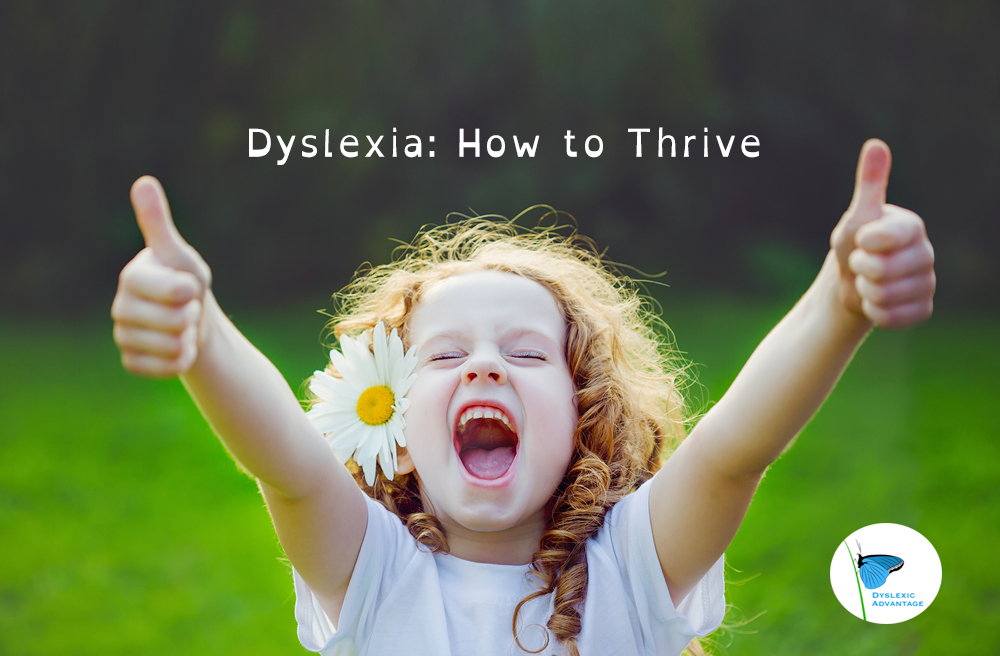We're often asked to give suggestions of activities or jobs that might be bad matches for people who are dyslexic, but the best answer is almost always, "It depends." Dyslexic people tend to excel in creative activities that may include some or all of the MIND...
Competence and Confidence in the Early Years
"The more you know yourself, the more patience you have for what you see in others." - Erik Erikson In the late 1950's and early 60's, Erik Erikson, Harvard professor of Psychology, proposed 6 stages of psychosocial development that supplanted other theories of...
Dyslexia and Mapping Out the Mind [Premium]
When Dan Pink wrote his book about the world needing more skills of the Conceptual Age, many in the dyslexia community couldn’t help but notice that his list looked a lot like common lists of dyslexic strengths: – Artistry – Inventiveness – Big-picture thinking – Pattern recognition – Empathy The implications for education and careers were straightforward. The goals of education and satisfying work should not be mere mastery of information, but a mastery of concepts that could be used flexibly to solve problems and create things that are new. Pink is not a neuroscientist; he is a popular author and observer of trends. Where are we now in our understanding of “dyslexic thinking”? There are many interesting lines of thought coming together these […]
Dyslexia and Social Studies [Premium]
Many dyslexic students are natural storytellers and may even have a passion for history and analyzing various aspects of society and social change. As a subject Social Studies can be difficult for dyslexic students, so the question is how to build on strengths, but bypass challenges due to extensive reading and writing demands, and rote memorization. Dyslexic Strengths in Social Studies: Strengths in Social Studies may reflect all 4 of the dyslexic MIND strengths: spatial strengths in geography or movement of people, Interconnected reasoning strengths may allow students to see complex events from multiple perspectives and through multiple lenses. Narrative intelligence may help them immerse themselves in stories of the past and analyze decisions of different people experiencing different events. Dynamic reasoning strengths […]
The Strength Switch [Premium]
Lea Waters is a psychologist and author from Australia who has developed a helpful strategy to reframe and help common childhood challenges. She suggests 5 Questions to overcome a natural tendency to be negative. Here are the 5 questions. 1. Is It Strength Overuse? 2. Is It Strength Underuse? 3. Is it the Flipside of a Strength? 4. Could It Be a Blocked Strength? 5. Could It Be Forced Overuse of a Weakness or a Learned Behavior? #1. Is It Strength Overuse? Lea gives the example of her husband’s playfulness and humor. He could make his classmates laugh, but his playfulness and humor could also get him in trouble with teachers and other authority figures. From Lea: “A strength-based parent taking a child […]
Starting from the Positive Side of Dyslexia [Premium]
Last week I had a chance to talk with Aillie McKeever of the Schwab Learning Center at Stanford. In 2019, before COVID pandemic had fully taken hold here in the US, Stanford’s Schwab Center had decided to prioritize strengths in their approach to each and every student. They announced a “paradigm shift” to a strength’s based model of education. Every student would have a folder with a strengths section included in their assessment. Neurolearning shared its MIND Strengths Questionnaire with the center to examine the impact on students there. From Aillie: “In 2019, the MIND Strengths questions were included in this interview for every new student. Doing this seems to amplify students’ recognition of their strengths. As Learning Specialists leading the interviews, we noticed that […]
Tips From Hannah: College Junior with a 4.0 [Premium]
KNOW YOUR STRENGTHS – SELF-ADVOCATE – Early in group work, let your fellow students know that you’re dyslexic. Say, “I’m dyslexic, so I can’t read or write well, but I’m creative and can come up with ideas.” – Don’t be afraid of asking students to read things for you. You can help more if people read things aloud to you. – Research on RateMyProfessor ahead of time to find teachers that will work with you re: dyslexia. Are there any warning signs? I like choosing professors who like a lot of class participation. ASK FOR SUBSITUTIONS IF YOU NEED THEM When snow days upset the schedule at school, Hannah had to face learning material and putting together an assignment over Thanksgiving break without the help […]
Effect of Strength-Based Coping on Children’s Stress and Coping
From Australia: "Strength-based parenting is an approach where parents deliberately identify and cultivate positive states, processes and qualities in their children," Professor Waters said. "This style of parenting adds a 'positive filter' to the way a child reacts...
How Dyslexic MIND Strengths Integrate with Multiple Intelligences [Premium]
In our book, The Dyslexic Advantage, we spoke about the 4 MIND strengths common in adult dyslexics: M for Material Reasoning, I for Interdisciplinary Reasoning, N for Narrative Reasoning, and D from Dynamic Reasoning. These skill clusters and talent sets had parallels in brain systems and processes as well as careers, domains of expertise, and areas of innovation. Multiple Intelligences is a concept that was introduced by Howard Gardner of Harvard to identify specific modalities that went beyond a single intelligence or general ability. The seven he initially characterized were: musical-rhythmic, visual-spatial, verbal-linguistic, logical mathematical, bodily, kinesthetic, interpersonal, and intrapersonal. The ones he considered adding later were naturalistic (able to classify natural forms, ecological ‘receptiveness’), existential or spiritual, and teaching -pedagogical in telligence. Somewhat related […]
A New World Shaped by Dyslexics – Thomas G. West
Thanks, Founding Dyslexic Advantage Board Member Tom West for this presentation "A New World Shaped by Dyslexics." Tom is the author of In the Mind's Eye and Thinking Like Einstein for A New World Shaped by Dyslexics for Embrace Dyslexia Symposium in Singapore....
Dyslexia and IQ: What You Must Know [Premium]
Here are 4 of the Most Important Things You Should Know About Dyslexia & IQ: #1. It Can Be Used to Identify Strengths and Talents. In our minds, one of the best reasons that dyslexic students benefit by IQ testing is that it can quickly establish their intelligence and strengths. There are many strengths that aren’t measured by IQ testing, of course, but also many that it can find – and it provides an objective standard with schools and other institutions wil accept. For dyslexic students in particular, it tends to trump traditional ‘achievement’ assessments because the best tests are given one-on-one (we do not like group IQ tests) and tests of higher order thinking are for the most part untimed (the verbal tests) involve […]
Dyslexia – How to Thrive
"Self-esteem is not an internal quality fed by easy success and diminished by failure. It is a positive way of experiencing yourself when you are fully engaged and are using your ability to the utmost in pursuit of something of value." - Dr. Carol Dweck, Stanford...

![Is There Anything I Shouldn’t Do? [Premium]](https://www.dyslexicadvantage.org/wp-content/uploads/2024/02/is-there-anything-not-do-400x250.png)

![Dyslexia and Mapping Out the Mind [Premium]](https://www.dyslexicadvantage.org/wp-content/uploads/2021/10/Dyslexia-and-Mapping-out-the-Dyslexic-Mind-1-400x250.png)
![Dyslexia and Social Studies [Premium]](https://www.dyslexicadvantage.org/wp-content/uploads/2021/09/Screen-Shot-2021-09-07-at-6.15.03-PM-400x250.png)
![The Strength Switch [Premium]](https://www.dyslexicadvantage.org/wp-content/uploads/2021/08/strength-switch-4-400x250.jpg)
![Starting from the Positive Side of Dyslexia [Premium]](https://www.dyslexicadvantage.org/wp-content/uploads/2021/06/Starting-From-The-Positive-Side-Of-Dyslexia-400x250.png)
![Tips From Hannah: College Junior with a 4.0 [Premium]](https://www.dyslexicadvantage.org/wp-content/uploads/2021/04/Hannah-306x250.png)

![How Dyslexic MIND Strengths Integrate with Multiple Intelligences [Premium]](https://www.dyslexicadvantage.org/wp-content/uploads/2016/09/our-shutterstock-color-bulb.jpg)

![Dyslexia and IQ: What You Must Know [Premium]](https://www.dyslexicadvantage.org/wp-content/uploads/2016/06/iq-graphic-scaled.jpg)














